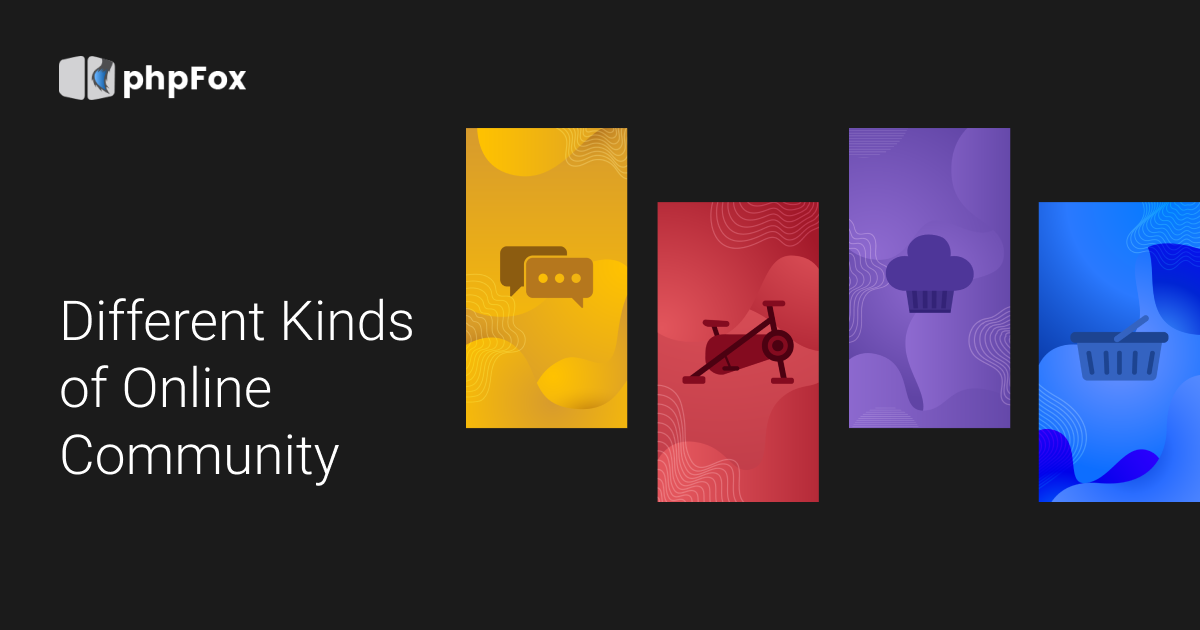
Online communities are increasingly widely used as business tools. According to a recent survey from the analytics company Demand Metric[1], two-thirds of businesses use various forms of online forums. Larger businesses are more likely to have communities, with 74% claiming to have one. So how many kinds of online communities are there?
RELATED: How to improve customer experience?
In This Article:
- Interest Communities
- Social Communities
- Local Communities
- Advocate Communities
- Insight Communities
- Professional Communities
- Support Communities
7 Kinds of Online Communities
There are several kinds of online communities that are attempting to achieve various commercial objectives. Currently, various kinds of businesses are attempting to establish online communities in order to get a competitive advantage in the market. Customers like to visit help groups in order to discover answers to specific problems.
Online communities come in a variety of shapes and sizes. Few companies have a distinct presence across many social networks. On the other hand, a handful of them choose one of two platforms to symbolize the best of what they are attempting to do. For example, they have a corporate blog where they provide news, updates, and niche-specific recommendations. The following is a list of several sorts of online communities.
Interest Communities
This is probably one of the most well-known kinds of online communities out there as these communities focus specifically on a certain hobby, brand or hobby. They may be a lot of fun as they tend to have a common interest, so make sure the content is interesting and entertaining for the members. When it comes to building these communities, videos may be quite helpful. You may publish your own video and encourage others to do the same.
RELATED: Get the People to Contribute More with Gamification
Social Communities
Another popular kind of online community is social communities. Some examples of online social communities are Facebook, Instagram, Twitter, Linkedin and many more. Furthermore, brands utilize social communities for marketing purposes such as brand awareness, broadcasting facts, and reaching a larger segment of the audience for the purpose of message and campaigns. Social networks are useful for keeping track of rivals, what they are up to, and identifying brand customer trends.
Local Communities
These kinds of online communities generally focus on a certain topic. They provide a means for neighbors to communicate information and news. Local leaders are present in these types of communities. They also have a lot of grassroots support and are very communicative.
They are on the lookout for marketing that may detract from the experience. They also manage and monitor marketing by limiting advertisements to a single day each week or by sloughing commercial communications into a distinct section of the community.
Advocate Communities
Such brands enable brands to mobilize loyal and enthusiastic customers. This sort of community, also known as advocate marketing software, compensates members for writing a testimonial, posting about the company on social media, and completing similar tasks. According to Laura Ramos, branded customer groups of this type can help promote good word of mouth.
Insight Communities
They are made up of a carefully selected group of customers who have a long-term engagement with the companies/brands. Such online communities enable the business to continually obtain high-quality input from interested stakeholders such as workers, partners, or consumers. It is a prominent mainstream market research technique that aids in the discovery of new paths in customer experience, marketing, and innovation.
Professional Communities
Individuals in a professional community can share comparable work experiences and advise. You should make sure that the information and details offered in the community look friendly to newcomers. You must also guarantee that the community’s content and material are sophisticated enough to pique the attention of seasoned experts while creating such a community.
Support Communities
Members of these online communities might give product recommendations to other consumers. They are also beneficial to businesses in terms of lowering customer service costs. In comparison to social communities, this category provides a more systematic approach to collect creative ideas since support communities allow the business to track many sorts of service and product related interactions. According to studies, over 80% of businesses have some kind of support group.
Different types of online communities provide their own set of advantages to your company. To identify which kind best meets the needs of the business, you must first determine the aims of the business, then evaluate the level of consumer input needed, and then choose the correct and complimentary combination of different online communities.
Certain forms of online communities are more suited for dealing with certain business issues. To define the sort of community you will develop, you must first grasp the essential requirements of your business. The online community area has grown in popularity and is expanding on a large scale as organizations see the value of engaging workers, customers, and stakeholders in two-way and continuous dialogues.
That is why it’s essential to invest in your own online community, phpFox can help you with just that. With various built-in features and suitable for both mobile and web, everything you need to build your own community and gain more customers. So what are you waiting for? Contact us and let us know how we can help!
UP NEXT:
- How To Manage And Grow An Online Community
- 6 Steps to build an online community
- 5 reasons why enterprises should create a social network
REFERENCE:
[1]Online Communities Benchmark Report – Retrieved from:
https://www.demandmetric.com/content/online-communities-benchmark-report